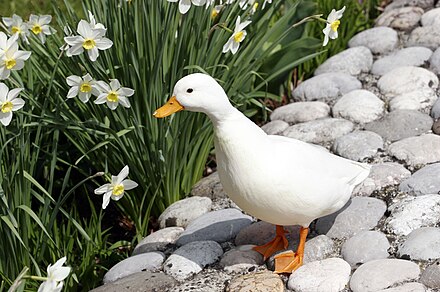Mallard is a common wild duck species and the ancestor of farm ducks. It is usually found in the temperate and some cold zones of the Northern Hemisphere. Common ducks in this context may refer to farm ducks or domestic ducks, and these duck species may actually come from wild Cole ducks. Here are some differences between Cole ducks and regular ducks:

1. Ecological characteristics:
Cole's Duck: The Cole's Duck is a wild duck species commonly found in lakes, rivers, swamps and coastal wetlands. They are migratory birds, and some populations migrate to warmer areas to overwinter.
Common ducks: Common ducks may refer to farm ducks or domestic ducks that have been domesticated and usually live in feedlots or in waters surrounding human settlements.
2. Appearance features:
Cole duck: The male Cole duck has a green glossy head, white collar, orange feet and a black tail. Female Cole ducks are brown all over, with darker heads and tails.
Common Duck: Farm ducks can vary greatly in appearance depending on the breed, but are generally larger and plumper.
3. Differences in behavior:
Cole duck: As a wild bird, Cole duck has a more primitive survival instinct. They usually show the avoidance and escape instincts of wild birds.
Common ducks: Farm ducks and domestic ducks have generally been domesticated, and their behavior may be influenced by their environment and husbandry practices.
Overall, the Cole duck is primarily a wild duck species, while common ducks may refer to farm ducks or domestic ducks, the latter of which are usually domesticated by humans and have some notable differences in behavior and appearance.
animal tags: duck
We created this article in conjunction with AI technology, then made sure it was fact-checked and edited by a Animals Top editor.